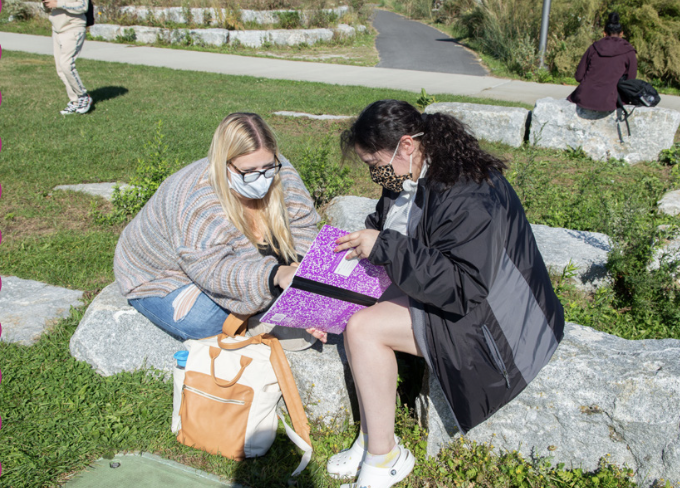Since entering my twenties, I’ve noticed a couple themes within my friendships. Friendships have started, ended, warped, grown and evolved in ways that were unknown to my teenage self. I’m just now making sense of all of these changes.
As a teenager, my definition of friendship was simple: I’m here for you and you’re here for me. We talk often, and we know every intimate detail of each other’s lives. But this view is unsophisticated and a little naïve.
Friendship is complicated because people are complicated. There isn’t a one-size-fits-all definition of friendship. Different people bring different kinds of friendship to the table. Sometimes your idea of friendship doesn’t match another person’s idea and that’s okay. Having a different idea of what a friendship looks like doesn’t make you a bad friend. It’s just different.
Adjusting to college from high school was difficult for me because my high school friends didn’t have the same idea of what our friendship meant. When distance separated us, our relationships changed. At first, it was uncomfortable, but eventually I grew to understand and appreciate it.
My friendships with my best friends exist mostly through text because of the distance that separates us, but we make an effort to keep our friendship alive. The effort is what’s important. In the past, friendships with less effort usually left me questioning the other person. Do they want to be my friend? Does our relationship mean something to them? When I have relationships where both parties put in effort, I feel less anxious and more comfortable with the other person.
Effort is the key foundation of my relationships, but it’s different for every person. Try to think what values you appreciate in friendship and which ones make you uneasy. When I realized effort was a key factor, I stopped putting time and energy into people who weren’t reciprocating. After, I felt better about myself and the people around me.
Also, take notice of what makes you frustrated in relationships. For me, kindness and acceptance are extremely important. Excluding people is a big no for me, even if you don’t really know someone. I never want to make people feel bad by excluding them, and I expect my friends to feel the same.
Once you come up with your do’s and don’ts in friendship, be sure to enforce them and stand up for yourself. Have an expectation for your friends to treat you right, and if they don’t, let them know. Friendships should have open communication, so you know their boundaries and they know yours: It is the key to successful friendships.
If friendships haven’t worked out in the past, try to figure out why they haven’t worked. Keep a neutral opinion and really be honest with yourself. Is there something you do that hurts other people’s feelings? You also may not have met the right people. The right people take time to find. You aren’t going to meet the people that will be there for the rest of your life all at the same time. It takes time to build a friendship or a group of friends that have that level of trust and connection.
Be patient when looking for friends and come to terms with the fact that your friends might not be in your life forever. It’s okay to lose some friends throughout your life. Friendships usually serve a purpose, and when that purpose is over, it may be time for them to exit. I’ve had friends that I really needed at one point in my life, then later we change, as people do, and we grow apart. Growing apart with your friends is a natural part of life, and while it is sad, it is necessary.



